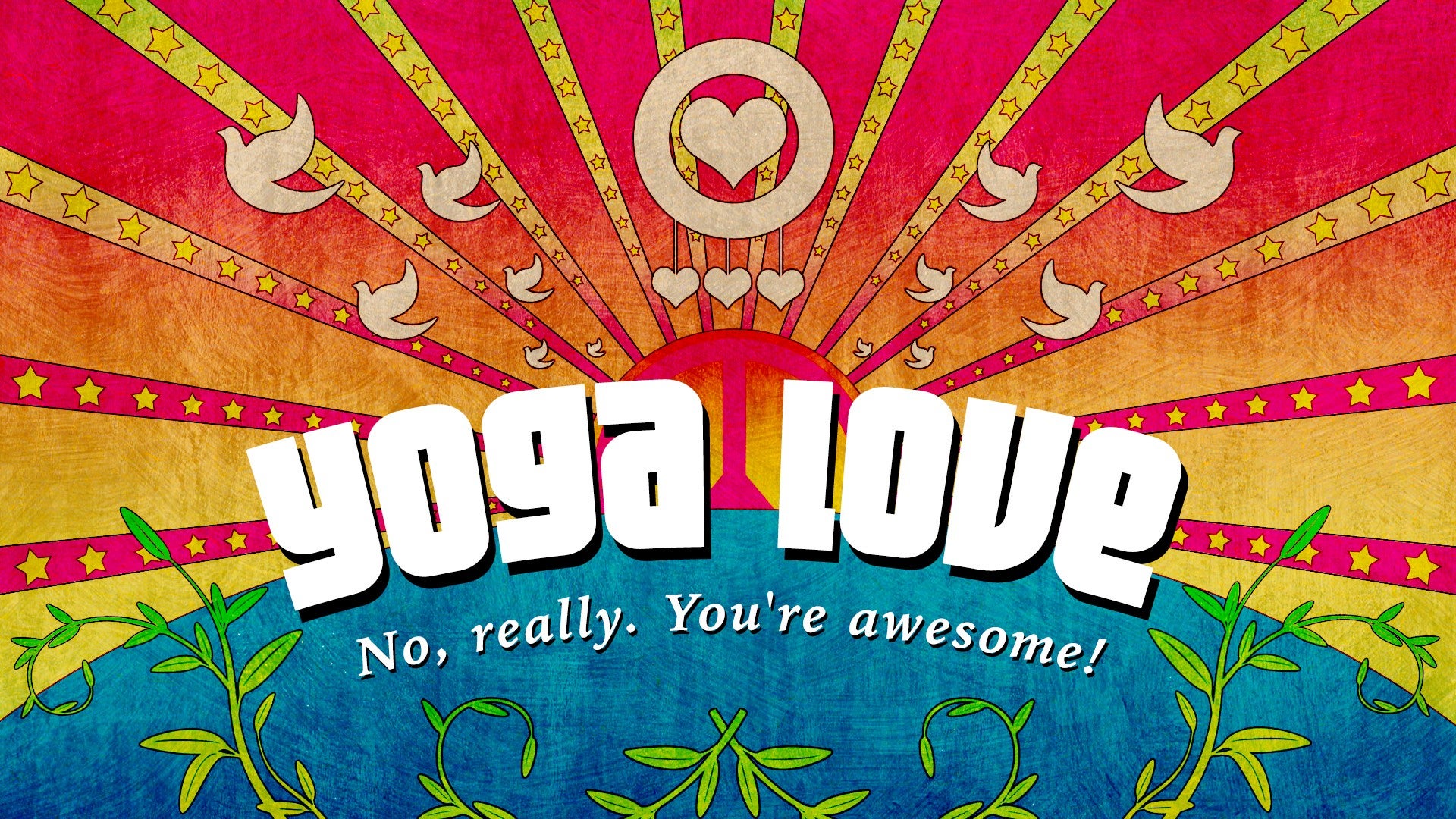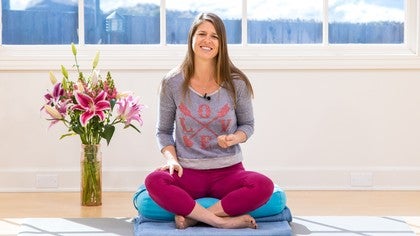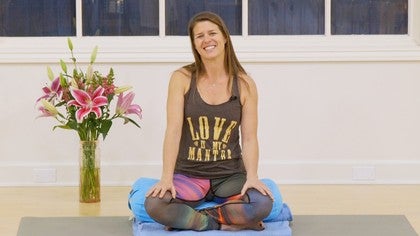Description
About This Video
Transcript
Read Full Transcript
(waves crashing) So welcome to this talk on compassion. On compassion for yourself and on compassion for those in your life, especially those that maybe you find it the most difficult to be compassionate with. I know for me, both shame and resentment have a quality of imprisoning me to the past. Of not allowing for freedom in the present moment, and they've been both of them really powerful teachers. So, I want to take some time to share with you what I've been able to learn so far about how to let go of and move through into and therefore through both experiences so that we can walk compassionately with yourself and with others in your life.
I had an experience of profound shame. I thought I invented affairs. I had an affair and I hated myself. I was so far out of integrity. I hurt the person that I loved.
I broke so many hearts and I really humiliated me to the extent of feeling as though I was completely unworthy of ever being loved. Of ever being accepted, and definitely unworthy of helping other people. As a therapist, it hit every part of my ego to experience something that I was so deeply ashamed of. And so I know intimately what it's like to hate yourself and to feel horribly about the way that you've acted. And what I know for sure is you are not your behaviors.
You are not your mistakes. You are not your story, and when you can release yourself from being and identifying with something that you've done, you can free yourself from it, and it is a process. Forgiveness is a practice. It's a commitment, it's not a papering over something and it's certainly not a bypass. It's not not being accountable for your action, but there's a difference between shame and guilt.
And shame is identifying with the behavior. In my case I thought I was that affair. I couldn't see that I also had some really beautiful and powerful qualities. Just that, I just sucked. And when I was able to really, over years, work through, that's not the only thing about me.
I'm not that thing. I don't have to identify with that action. I can instead be who I am in this present moment and let that be a decision that I made that I deeply regret. That helped, because then shame can turn into guilt. Guilt's not comfortable, but it's necessary because it's a teacher.
It shows us that's out of integrity, that's out of alignment, it doesn't feel good, it's not serving me, that action. So it prevents us from taking similar action in the future. Shame is like black tar over a garden. Identifying with a behavior doesn't allow us to do differently. It doesn't allow us to grow through it.
It doesn't allow the decision itself to transform us and to help liberate us. So I think step one in coming out of something that you feel ashamed of is being able to not identify with it, but recognize it as a decision that you made that you deeply regret. Turns it into guilt. Guilt's separate from who you are. It's not you.
It's something that you did. And then you can do the work of recognizing that in that moment, in the moment that you made the decision that you regret, you were in fact doing your best with the resources available to you then. And you might be thinking, me too. But I knew better. Right.
Knowing something and being able to align your behavior with it are really different things. So yes, you may have known better. I knew that was wrong. I knew it when I did it. But, there are powerful forces inside of us and most of them are unconscious.
They're powerful forces in our shadow that need to rework something. I won't get too far into that, but even though you knew better it doesn't mean that you could do better. You were still doing your best with the resources and the tools available to you in that moment. If you could've done better, you would've, and that's one of the things that helps liberate you from the shame now is recognizing I know better and can do better because in this moment, I recognize all the havoc and all the discomfort I would cause myself. That's the power of being able to look back.
So in order to release shame, you first have to de-identify with the mistake or the error or the decision, turn it into guilt and then work with the guilt and recognizing you're not that person in this moment. And even if the shame is about something that happened this morning, or last night, it doesn't have to be something that happened 10 years ago, but it could be. It doesn't matter, it's all the same. Time is an illusion, so something that happened two seconds ago and something that happened 20 years ago, they're both in the past and you cannot impact them today. You can, however, change your perspective of them so that you can free yourself in the now.
The shame doesn't serve you. The shame that you hold doesn't serve the people that you hurt because of your action. So there's no benefit at all to holding on to the shame and to being in the cycle of self beat. It's destructive. It's not beneficial.
It's harmful, and if you're a yogi and you're practicing a hamsa, shame and self beat become self sabotage, self harm. It goes directly against the practice of non-harm and of being loving and kind to yourself. So one of the practices I recommend that I use often is a forgiveness meditation that I learned through Jack Cornfield. Wherein you sit with the recognition that because of your own fear, or illusion, you caused actions that harmed yourself or others and that to the extent that it's possible can you open any amount of your heart to offer forgiveness to yourself. It's a powerful practice, and I want to make clear that forgiveness is not a condoning.
It's not saying I am, I feel okay about that behavior. You can both feel... Wish that it might have been different and find a way in the now of appreciating it was exactly what it needed to be, and that all of the players involved, yourself included, actually needed that instance to go down in exactly the way that it did in order to grow. Whether or not the people involved get the lesson, as my teacher Shaun Cord says, is between them and God, but your work, your inner work is to get the lesson so that you don't repeat the harmful behavior. That can't happen as long as you hold on to shame.
So I hope, I hope that's helpful in some way to motivate you to get through the shame that you might be holding, and recognizing that you might have more to offer yourself and others if you're able to be in a practice and it is, again it's a practice, of forgiveness. And what I mean by practice is it's a commitment to continuing to going back and looking and navigating through and investigating all of the reasons why that came up for you. That decision or that behavior, so that you can continue to sift through and be more clear, and be more open to not causing harm to yourself or others again. In exactly the same way, resentment works to hold us back and to keep us down and to keep us in prison. I can't remember who said this, but I read that a prisoner and a prison keeper are both still in jail.
Of course they are. And when we hold resentment towards somebody else. When we cannot get past the fact that they harmed us, we become addicted to that story. I mean addicted, like it has such a gravitational pull. And in that addiction to the story, we label ourself a victim.
You are not a victim. I am not a victim. We are free to make choices. Other people do cause harm for us, that is certain. Other people betray us, they lie to us, they leave us, they abandon us, they break our hearts, they act in ways that are horrifying.
There's no question that that's the case and all the feelings that come up for you when that happens to you are valid and they're necessary and they're trustworthy emotions. There's no denying that. And after you've allowed yourself to feel what it's like when somebody harms you and hurts you, it's important at some point in your journey to free yourself from continuing in that story. Because as long as you're in that story, you can't come into the present moment and the present moment and the now is where you have power. It's where you have agency.
It's where you can transform yourself so that you can be transformative in the world around you. As long as you're holding resentment towards somebody else that's impossible. 'Cause your energy is taken up by wishing something were different than it is. It was that. That person, or that situation, or that organization harmed you.
It hurt you. It didn't go down the way that you hoped that it would, but perhaps in some way, you could use what occurred as a teacher. Perhaps you could see it as a lesson, and if you could be willing to open your heart to any extent to that person, or to those people, maybe you could see that they were acting out of their own fear or their own illusion. That their own discomfort was causing them to need to be hurtful or harmful or oppressive or unjust toward you. And that maybe.
Maybe, you could now see the situation as something from which you could learn. Maybe it was part of your life's curriculum to have undergone that hurt and that harm. I am not talking here about severe trauma. I am talking about the situations in life that come up that we just wish were different. We can spend a lifetime fighting what was.
But it already occurred, so it was. And there's really no benefit in that fight. If you can let yourself be in the now with recognition that all that happened, whether it was harm that you caused yourself that you feel shame over, whether it was a deep hurt or offense that someone else offered, I'll use that word to you, your opportunity for freedom is in the forgiveness. It's in the compassion. And the compassion is inside that practice of being present in the now and recognizing that everything that's occurred has been part of your soul's journey and everything that has occurred has been part of your soul's curriculum of this lifetime so that you can continue to be inside of your dharma.
So that you can continue to get the clarity that's necessary for you to be of service to yourself and to those around you. So I encourage you to the extent that's possible for you, begin the practice now of forgiveness for yourself and for those who have hurt and harmed you. There is only joy that can arise when you allow yourself to let go of those moments that are in the past. And there's only power and the potential of being present in the now without causing harm to other people and certainly not to yourself. Thank you for joining me.
I wish you so much compassion. The little one inside of you, you might have to draw upon her or him if you're finding it difficult in the now to be compassionate with your adult self, here's a tip. Imagine yourself as a child, an infant or a toddler, and see her or him clearly and recognize that that little one is doing their best and you may need to develop an internal vocabulary to that little person who's still part of you and still in you and say I've got you. It's okay, I get it. You needed to throw that tantrum.
You needed to cause that harm. I understand, and I'm with you and we can do differently now 'cause I've got a little bit more resource. I'm gonna hold you in me and let you have your big feelings and I'm going to be the adult me, the one that's in charge of the action. I hope this has been helpful. Thank you for listening.
Be blessed, namaste.
Yoga Love: Love Your Insides
Comments
You need to be a subscriber to post a comment.
Please Log In or Create an Account to start your free trial.













